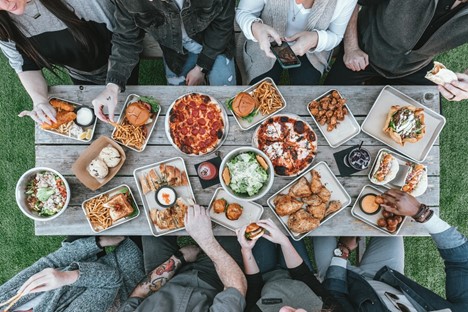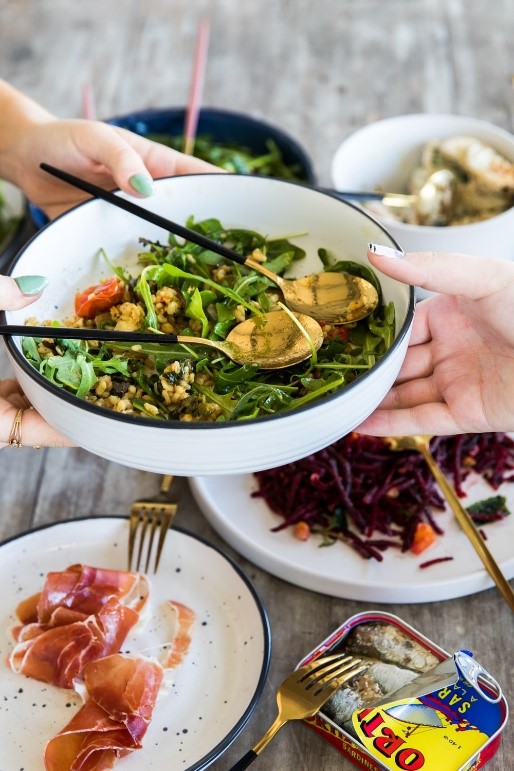Written by Sheri Branson, Meredith dietetic intern at Carolina Meadows
Older adults living alone are more vulnerable to malnutrition than older adults who share a meal together. This is partly due to the loneliness and isolation they experience after a spouse dies among other things. In a cross-sectional study, it was found that widows and widowers had as much as 36% lower food intake than others. This group also had the highest rate of depression. Results of the study indicated that nutritional education and counseling done by health professionals could contribute to healthy aging.
Eating alone is widely accepted as a cause of nutritional vulnerability in older adults. Sharing a meal with someone is associated with improved energy intake, an increase in food quality and variety of foods eaten, and longer mealtimes. The regularity of meals declines when they are not being shared with others. Widowed adults are more likely to skip meals, experience less enjoyment at mealtime, and have less of an appetite than peers who share meals with others. Changes in meals after losing a spouse vary including fewer regular mealtimes, more simple preparations, and more prepared and/or commercial foods. Focusing on the pleasure of food itself may help overcome barriers to eating well after the loss of a spouse.
The connection between food and mourning runs deep. One study found that grocery shopping and preparing meals alone can be painful and overwhelming and can often lead widows to skip meals or eat in expensive or unhealthy ways. For a spouse accustomed to sharing meals with a partner, the grieving can go on indefinitely. For the spouse who did not shop for the groceries and prepare the meals, it can be especially difficult to navigate where to begin. Start SIMPLE. Make a game plan. Think about a few things you would like to try to make on your own. Look at recipes and create your grocery list. When going to the grocery store, consider inviting a friend or family member to help. More time-consuming prepping for meals can be done when time is available such as on the weekends or days off. Otherwise, remember to keep it simple. Recipes can be cut in half or make the full recipe and freeze half. Brainstorm a list of people you would be willing to sharing a meal with. This could be a neighbor, an old or new friend, someone who is newer to widowhood than yourself, or someone who has navigated it well that you would like to know, or a local family member. You do not have to prepare everything. Ask a guest to bring an appetizer or dessert or host a small potluck and assign each guest a part of the meal to bring.
Malnutrition later in life can lead to impaired function, increased risk of post-operative complications, and mortality. Conversely, regular meal preparation and dining with others are associated with higher calorie intake, improved nutritional status, improved quality of life, and lower risk of mortality.
Reach out to the Carolina Meadows dietitian, Jillian Schoening at 919-370-7187 with any questions or to schedule a nutrition consult.
References:
- The effect of widowhood on weight change, dietary intake, and eating behaviors in the elderly population.
- Alone at the Table: Food Behavior and the Loss of Commensality in Widowhood.
- RelAte: pilot study of the effects of a mealtime intervention on social cognitive factors and energy intake among older adults living alone.
- Culinary Grief Therapy: Cooking for One Series
- For Many Widows, The Hardest Part is Mealtime


